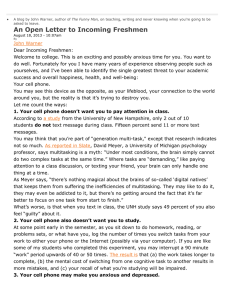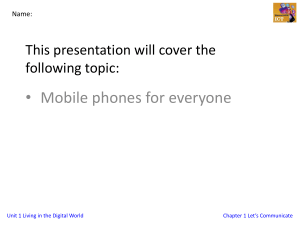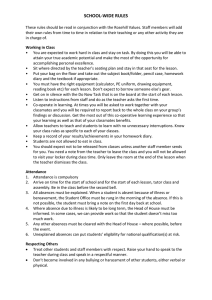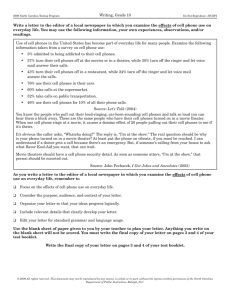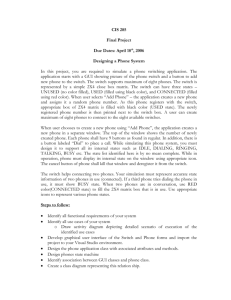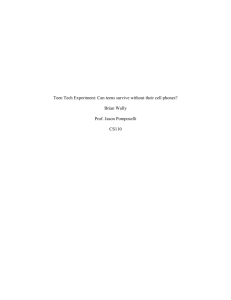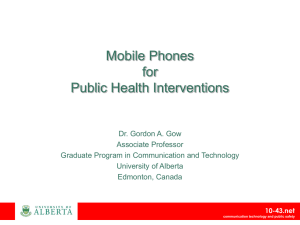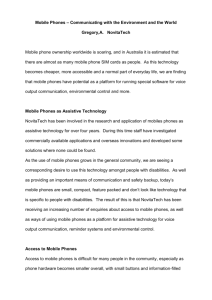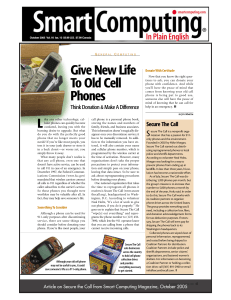Conference on Higher Education Pedagogy proposal review
advertisement
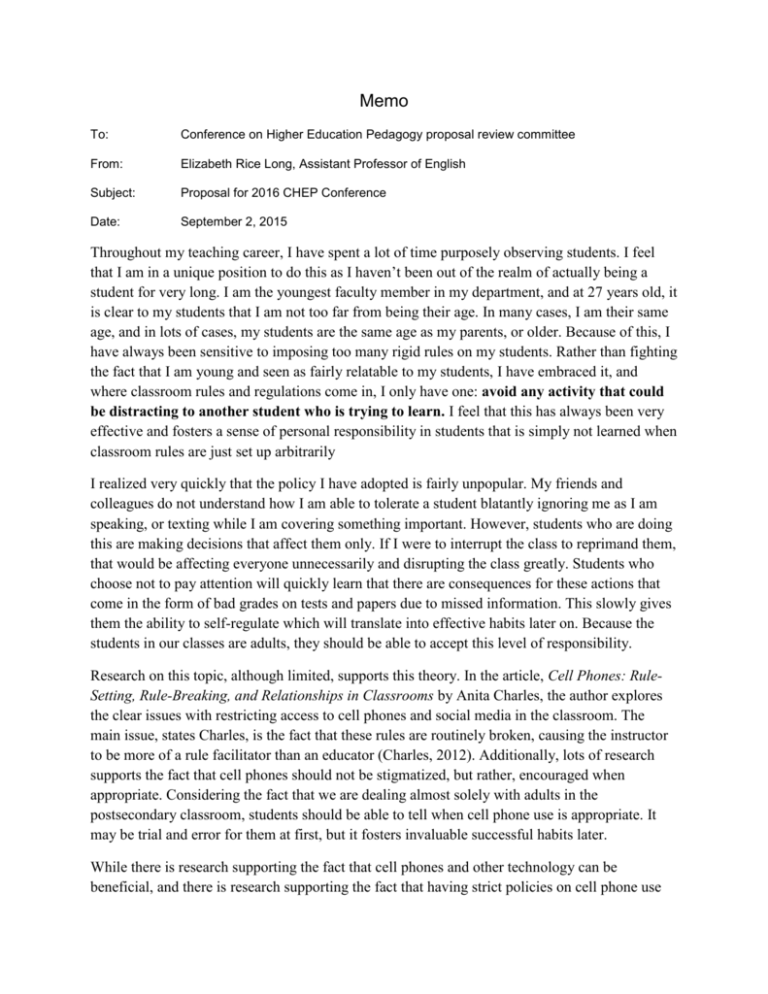
Memo To: Conference on Higher Education Pedagogy proposal review committee From: Elizabeth Rice Long, Assistant Professor of English Subject: Proposal for 2016 CHEP Conference Date: September 2, 2015 Throughout my teaching career, I have spent a lot of time purposely observing students. I feel that I am in a unique position to do this as I haven’t been out of the realm of actually being a student for very long. I am the youngest faculty member in my department, and at 27 years old, it is clear to my students that I am not too far from being their age. In many cases, I am their same age, and in lots of cases, my students are the same age as my parents, or older. Because of this, I have always been sensitive to imposing too many rigid rules on my students. Rather than fighting the fact that I am young and seen as fairly relatable to my students, I have embraced it, and where classroom rules and regulations come in, I only have one: avoid any activity that could be distracting to another student who is trying to learn. I feel that this has always been very effective and fosters a sense of personal responsibility in students that is simply not learned when classroom rules are just set up arbitrarily I realized very quickly that the policy I have adopted is fairly unpopular. My friends and colleagues do not understand how I am able to tolerate a student blatantly ignoring me as I am speaking, or texting while I am covering something important. However, students who are doing this are making decisions that affect them only. If I were to interrupt the class to reprimand them, that would be affecting everyone unnecessarily and disrupting the class greatly. Students who choose not to pay attention will quickly learn that there are consequences for these actions that come in the form of bad grades on tests and papers due to missed information. This slowly gives them the ability to self-regulate which will translate into effective habits later on. Because the students in our classes are adults, they should be able to accept this level of responsibility. Research on this topic, although limited, supports this theory. In the article, Cell Phones: RuleSetting, Rule-Breaking, and Relationships in Classrooms by Anita Charles, the author explores the clear issues with restricting access to cell phones and social media in the classroom. The main issue, states Charles, is the fact that these rules are routinely broken, causing the instructor to be more of a rule facilitator than an educator (Charles, 2012). Additionally, lots of research supports the fact that cell phones should not be stigmatized, but rather, encouraged when appropriate. Considering the fact that we are dealing almost solely with adults in the postsecondary classroom, students should be able to tell when cell phone use is appropriate. It may be trial and error for them at first, but it fosters invaluable successful habits later. While there is research supporting the fact that cell phones and other technology can be beneficial, and there is research supporting the fact that having strict policies on cell phone use does not necessarily deter it, I would like to hold an open conversation with fellow educators about our responsibility to teach students to regulate themselves responsibly when it comes to the use of technology that is not normally encouraged in the classroom. Could a continuous “lesson” regarding this be just as valuable as any traditional course content? We are training students to do well in the real world, and in the real world, cell phones are permitted. People are successful when they are in the habit of using them appropriately and not as a compulsion that is only stopped by strict regulations
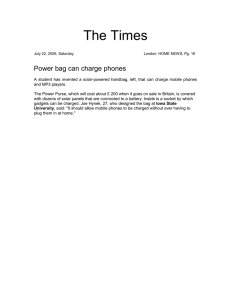
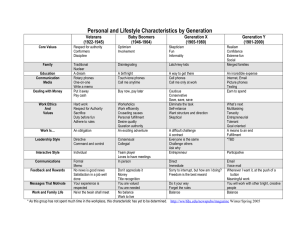
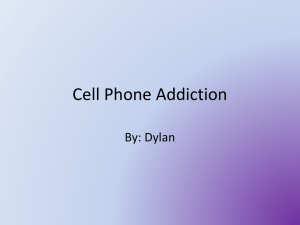
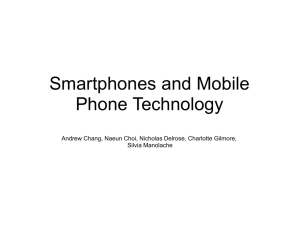
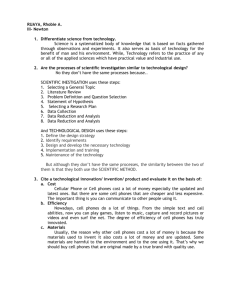

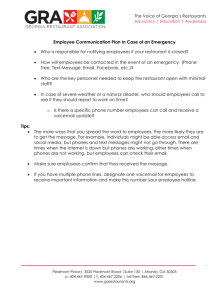
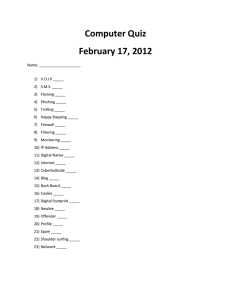
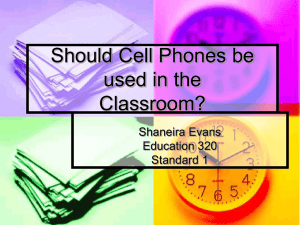


![[18549] – 3D.R.AWe YUMIN YILING WONG](http://s2.studylib.net/store/data/010477189_1-19815c370c1c07b7ee9c3c25fb3a3b2f-300x300.png)

